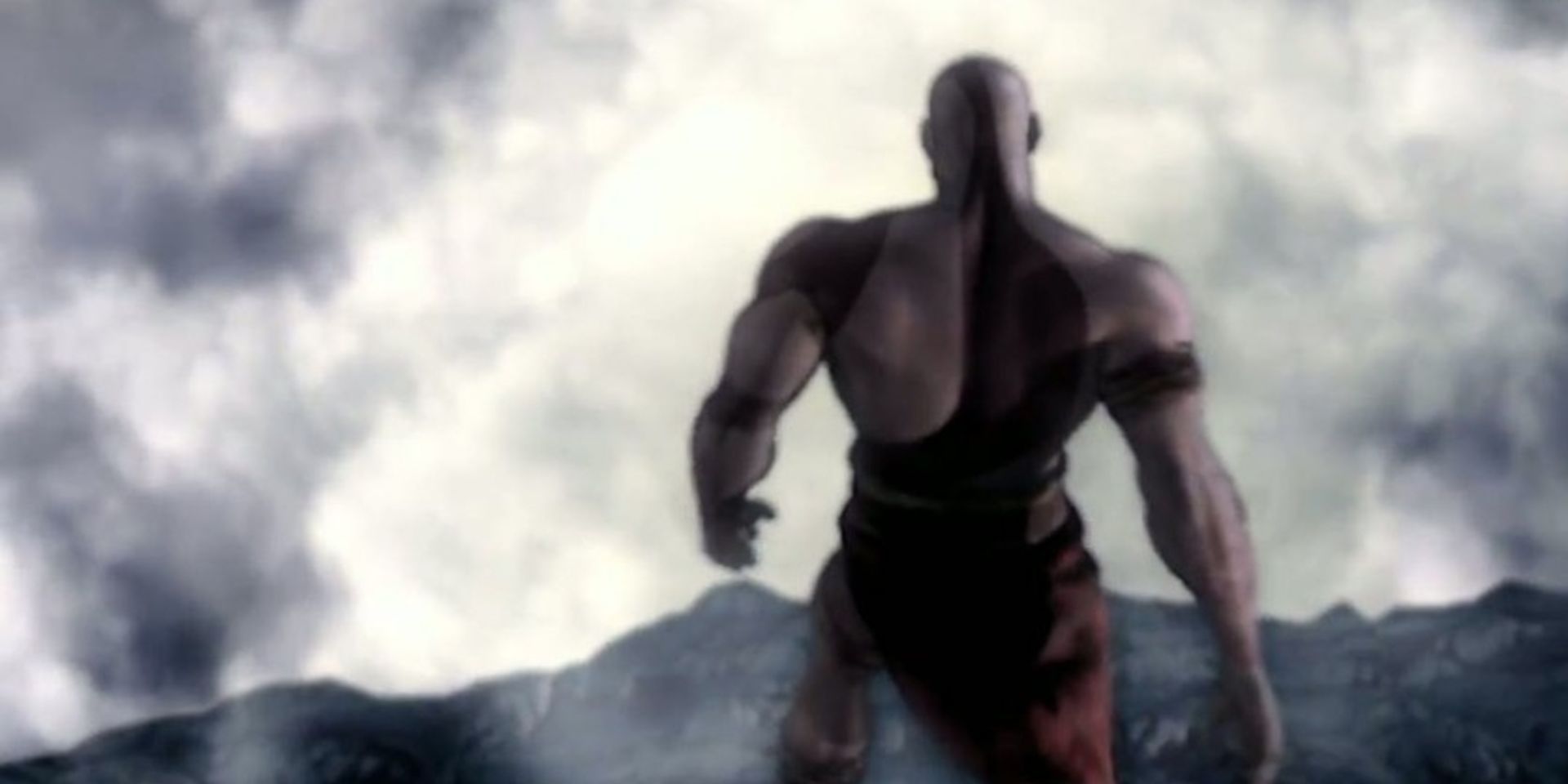When God of War released in 2018, critics and fans fell in love with the game's tender portrayal of a father and son bonding. For a series known for vicious violence, it was a definite change of pace. However, upon closer inspection, it becomes clear that the God of War series was always emotionally astute, as the most important moment of God of War is actually a callback to the 2005 original.
The God of War series begins not in brutality, but sadness. Kratos overlooks the Aegean Sea and mutters his first lines, “The gods of Olympus have abandoned me; now there is no hope.” Unable to escape the memories of his murderous past, Kratos wishes to die. So, he casts himself from the tallest peak in Greece. Of course Kratos does not die, and the gods save their champion, but his self-loathing remains. In fact, his hate propels God of War's narrative across all the games. Angry that the gods will not free him of his memories, Kratos kills wantonly and eventually turns his fury to the gods themselves after they betray him out of fear. After Kratos has his vengeance, he tries to kill himself yet again, but like before, the universe won't allow his death and his life continues. Kratos wanders and eventually finds himself in Midgard where the events of God of War (2018) unfold.
God of War's final scenes contain a stark parallel to the series' opening, with Kratos standing atop the tallest peak in all the realms, but instead of proclaiming despair, Kratos embraces hope. Kratos undoes the bandages that hide his scars, branded into him during his murderous exploits with the Olympian gods, and lets the wind blow them away. As his shame and hatred fall from the mountain top, Kratos exclaims, “I have nothing more to hide.” Kratos cannot undo the terror he perpetrated, nor escape the memories, but he can finally let go because he acknowledges his freedom in the present. By tossing aside the bandages, Kratos realizes that the memories and scars are nothing more than reminders of a former self which no longer defines him.
How Kratos Evolved in God of War
Kratos finds this new understanding thanks to the love of his son: a love he longed for but never believed he deserved. Kratos lack of self-worth is evident in God of War's opening moments. During his first hunt with Atreus, Kratos goes to touch his son's shoulder but recoils. This occurs multiple times throughout their journey together and underscores their primary conflict: Kratos sees himself as unworthy of his son's love, and, as a result, keeps Atreus at a distance. When Kratos finally embraces his son, it's by accident. Transfixed by a candle he has lit for his late mother, Atreus, naturally and without hesitation, backs into into Kratos – finding comfort in his father's arms. Kratos buckles but quickly regains himself; the seeds of acceptance are planted.
Following the accidental hug, Kratos becomes more at ease with Atreus and gradually reveals his past. Then, when all is revealed, it's an anti-climax since, because other than wanting to be closer to Kratos, Atreus never cared. This is highlighted by Atreus blithe reaction to Kratos declaration of freedom. As Kratos stands proud overlooking the valley, absolved of shame, Atreus is annoyed. He says, “Can we go? We're so close” – referring to the peak where they are to spread his mother's ashes. This outburst is not a lack of tact but rather a bold statement from Atreus; Kratos is, and always was, his father. The past never mattered.
In recalling the series' earliest scene, God of War brings Kratos' journey full circle. Kratos, trapped by self-loathing from the moment gamers met him, is finally freed by the love his son. A fitting resolution, considering the origin of Atreus' name. Kratos named his son after a Spartan soldier he knew in an age long past, before his time of terror with the Olympians. This soldier helped Kratos and his comrades to remember their “humanity” and “goodness.” As Kratos says, “He inspired us to hope.”


